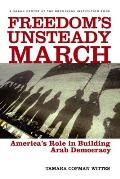See The ROBIN HOOD TAX in Spotlight
Friday, October 28, 2011
Friday, October 21, 2011
Tuesday, October 18, 2011
The politics behind the deal
Al Jazeera: The politics behind the prisoner swap
Like so many other diplomatic and political initiatives in the Israeli-Palestinian conflict, the recent announcement of a new prisoner release is based on the same solution that has been proposed dozens of times before - only to collapse because the time, and often Israeli political will, wasn't right.
In this case, the separate announcements made by Hamas leader Khaled Meshal and Israeli Prime Minister Binyamin Netanyahu, asserted that Hamas would release Israeli soldier Gilad Shalit, captured by Hamas in 2006, while.................Read more in the Spotlight
Shalit: An Occupier in Captivity جلعاد شاليط: قصة مُحتل في الأسر
Born in 1986, the Israeli-French citizen Gilad Shalit (גלעד שליט) serving in the Iraeli Defence Forces (IDF) spent the last 5 years of his life in captivity. On the 25th of June 2006, he was abducted by Hamas militants from inside Israel near the Kerem Shalom crossing close to Gaza. The operation was a daring cross-border raid via underground tunnels. The following video explains the details of the operation according to an isreali investigation
To watch the rest of the investigation, visit the page Spotlight
In 2009, Hamas released a short video of Gilad. To prove he was alive at the time, the prisoner showed a newspaper of a very recent date.
The Israeli soldier was held in isolation in unknown place, probably in Gaza Strip, for over five years until he was freed on October 18, 2011 after long negotiations mediated initially by the Germans, then extensively by the Egyptians. A prisoner swap deal was concluded. He was released in exchange for 1,027 Palestinian convicted prisoners, some of which were serving multiple life long sentences.
Sunday, October 16, 2011
Thursday, October 13, 2011
Wednesday, October 12, 2011
On violence and the human instinct to kill

As Egypt lives these critical events and shocking moments, I thought it would be good to think about the endogenous human love of violence and the human instinct to kill.
“As far back as we can tell, people have devoted some of the best of their minds and bodies to the problems of killing their fellows. Humans are the only animals which take the business of killing other members of their species with such seriousness. Other primates kill members of other species, usually for food. Members of the same species fight amongst themselves for mates, territory and so on, but they rarely fight to death. Killing amongst the non-human primates is equivalent to murder rather than to war. War is predominantly human activity. Despite its frequency, it is an activity which conflicts with the aims of most other human activities, such as the quest for wealth, knowledge, a happy family life and so on, all of which are better pursued under conditions of peace. The paradox is apparent. As Thomas Hobbes remarked, 'Avoid the "state of warre" in order to pursue the "Arts of Peace".
War is not universally abhorred. People’s attitudes towards violence culminating in death and suffering are ambivalent, combining horror for its obvious miseries with fascination for its splendour and the opportunities for gallantry and even for a nobles death which war provides.
Attitudes to war during the twentieth century seems to have altered somewhat, and common belief seems to regard it as a regrettable necessity rather than as something desirable in itself.
War appears as the supreme example of irrationality. It is the wanton destruction of life and the general conditions of human happiness. War may well destroy the human race in its entirety; it will almost certainly still cause much misery and suffering in the future as it has in the past. To link, it with rationality would seem unusually absurd.”
MICHAEL NICHOLSON in Rationality & the analysis of international conflict
Friday, October 7, 2011
20th Century Battlefields - 1973 Yom Kippur War
What happened on the 6th of October/Yom Kippur day?
To watch the full documentary, visit The War Room
To watch the full documentary, visit The War Room
The Memoirs of October War by Gnr.Saad El-Din El-Shazly - مذكرات حرب أكتوبر للواء سعد الدين الشاذلي

"This is a military memoir: my record as Chief of Staff of The Egyptian Armed Forces, during The Arab-Israeli War of October 1973. It is to the best of my knowledge, unique, being the only memoir of its kind by a contemporary Arab commander. I have written it with reluctance, with sorrow and with anger. When I say that my anger is directed primarily, at The President of Egypt, Anwar El Sadat, it will be understood why I, after a lifetime as a soldier serving my country and my people, was reluctant to take up a pen, and felt sorry that in the end it became an inescapable duty.
This memoir, I dedicate to the soldiers and officers of the Egyptian Armed Forces. It is their story; it tells at last, the truth about their triumph. I am proud of every single day I spent as Chief of Staff. I am proud that during my tenure, the first successful Arab offensive against Israel, was planned and executed.
I pay tribute to every officer and man, who took part in it, and in doing so, restored the pride of the Egyptian soldier. They are witnesses to the truth of what I write. Some parts of the story are known by thousands, some by hundreds, some aspects shared by only a handful. May God help and guide us, and give us the courage to say the truth, whatever may be the consequences."
I pay tribute to every officer and man, who took part in it, and in doing so, restored the pride of the Egyptian soldier. They are witnesses to the truth of what I write. Some parts of the story are known by thousands, some by hundreds, some aspects shared by only a handful. May God help and guide us, and give us the courage to say the truth, whatever may be the consequences."
A very expensive cost:
In 1978, General Shazly, sharply criticized The Camp David Agreement, and publicly opposed it. As a result, he was dismissed from his position and was forced into exile. There, he wrote this book, his account of the war.
The consequences of this publication cost Shazly dearly. He was court marshaled in absentia, and received a three years prison sentence. He was denied legal representation, stripped of his political rights and had his property sequestered. All without a single witness, save a captain serving in Military Intelligence. Two charges were brought against Shazly. The first was publishing a book without prior approval. A charge, Shazly admits to. The second was divulging military secrets in his book. A charge Shazly vehemently denies, claiming the so-called "secrets" were government secrets rather than military secrets. Shazly maintains the government was trying to hide the facts.
In 1992, Shazly returned to Egypt after 14 years in exile, in Algeria; for criticizing the policies of President Anwar Sadat. He was arrested in the airport upon his return.
No trial ever took place, and Shazly was forced to serve his prison term, despite the rule of law, according to The Egyptian Constitution, that sentences received in absentia, must be retried. During his time in prison Shazly's legal team, succeeded in obtaining a ruling from The Highest Civilian Court, which stated that the prior military conviction was illegal, and declared the military ruling was unconstitutional. The court ordered Shazly's immediate release. None took place. Shazly served the remainder of his sentence.
The Crossing of The Suez, and Shazly's later book, The Arab Military option, was never published in Egypt.
They were however; published in English, French and Arabic and sold in many countries. The book has been reviewed by major publications including The Economist, The New York Times, The Christian Science Monitor, and others. The book is currently in its second printing.
http://www.el-shazly.com/about.htm
Tuesday, October 4, 2011
Sunday, October 2, 2011
Freedom's Unsteady March: America's Role in Building Arab Democracy..............(by Tamara Cofman Wittes)
On May 1st 2008, FOREIGN POLICY & SABAN CENTER FOR MIDDLE EAST POLICY organized an event at the Brookings Institution to discuss the new book, then, of TAMARA COFMAN WITTES. Brookings Senior Fellow Tamara Cofman Wittes argues in her new book Freedom’s Unsteady March: America’s Role in Building Arab Democracy (Brookings Institution Press, 2008) that democracy promotion in the Arab world remains an essential component of any strategy to achieve long-term American goals in that critical region. In November 2009, Tamara Cofman Wittes became deputy assistant secretary of state for Near Eastern affairs at the U.S. Department of State. She was at Brookings from 2003 to 2009.




Selected Reviews
"[Freedom's Unsteady March] is an intelligent and thorough analysis that may help guide the next administration through the extreme challenge of furthering US interests in the Middle East. " Dierdre Sinnott, Foreword Magazine
"Freedom's Unsteady March is billed as a "realist's guidebook for democracy promotion." Wittes does not shrink from acknowledging the failures of the Bush administration in this area. But she attributes these failures to a halfhearted effort rather than the inherent unachievability or inadvisability of the objective." Eva Bellin, Foreign Affairs"We ultimately need allies who share our values—not just our interests. In FREEDOM'S UNSTEADY MARCH, Tamara Cofman Wittes forcefully and articulately reevaluates how we can encourage liberalization in the Middle East. It is a welcome contribution to the ongoing foreign policy debate." Lee Hamilton, president, Woodrow Wilson International Center for Scholars
"FREEDOM'S UNSTEADY MARCH is a definitive assessment of one of the central foreign policy challenges of our era. Not trapped in the Beltway straightjacket of either cheering for or sneering at President Bush, Wittes provides compelling arguments for why the United States should foster democratic change in the Middle East, and then offers creative yet sober ideas for how to promote democracy more successfully. Wittes knows intimately both Washington and the Arab world, knowledge which grounds her arguments in solid research and prudent judgments. It should be required reading for anyone seeking to help make U.S. foreign policy in the next administration." Michael McFaul, professor of political science, Stanford University
"The author contends that democratic reform in the Arab world is neither a luxury nor a pipe dream, but a necessity. In this compact, lucid book about the recent democracy project in the Arab Middle East, Tamara Cofman Wittes provides an incisive, critical account of the Bush administration’s democracy promotion policy. Despite its commendable objective, it was underfunded, bureaucratically contested, and ideologically entangled. Wittes concludes with a passionate plea to hold firmly to that policy objective but to serve it better." Saad Eddin Ibrahim, Egyptian democracy activist and chairman of the Ibn Khaldun Center for Development Studies
Saturday, October 1, 2011
Governments dont rule the world, Goldman Sachs rules the world

The Alessio Rastani controversial confessions and statements
Subscribe to:
Posts (Atom)




